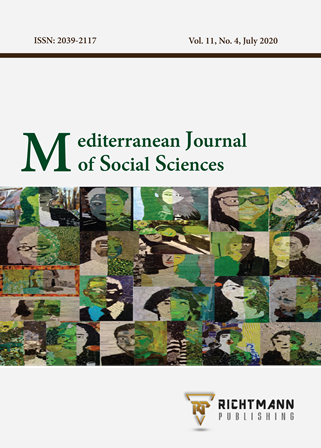Sexual Communication between Parents and Adolescents: Perception of Secondary School Students in Abeokuta, Ogun State, Nigeria
DOI:
https://doi.org/10.36941/mjss-2020-0046Abstract
This study assessed the characterization of parent-adolescents’ sexual communication of secondary school students in Abeokuta South Local Government of Ogun State, Nigeria. 411 adolescents were selected using multistage sampling techniques. Quantitative data was obtained with a semi-structured questionnaire. An in-depth interview was carried out to further explore parent-adolescent sexual communication as a representation of the qualitative data. Both quantitative and qualitative data collected were analysed using descriptive and thematic content analyses. Results revealed that most (64.5%) of the respondents had moderate perception of parent-adolescent communication. The findings of the qualitative analysis revealed themes of sexual communication including puberty, abstinence from sex, and HIV/AIDS. Parents’ awareness to sexual communication promoting was associated to physical changes during puberty and adolescents’ attitudes. Although, adolescents prefer to discuss sexual issues with their mothers, time factor for such discussion was a major constraint. In addition, adolescent perceived unwillingness on the part of parent to initiate or sustain sexual communication issues despite their knowledgeability. Adolescents perceived that their parents are knowledgeable about sexual communication but not willing to communicate sexual issues with them. The study concludes that parents’ unwillingness for sexual talk and time factors could pose threats to achieving effective parent-adolescent sexual communication. Hence, it is recommended that parents should engage in timely communication on sexual related issues often during early adolescence phase. It is imperative for fathers also, to create a conducive atmosphere for active sexual communication with their children especially male adolescents.
Downloads
Downloads
Published
Issue
Section
License
This work is licensed under a Creative Commons Attribution-NonCommercial 4.0 International License.











